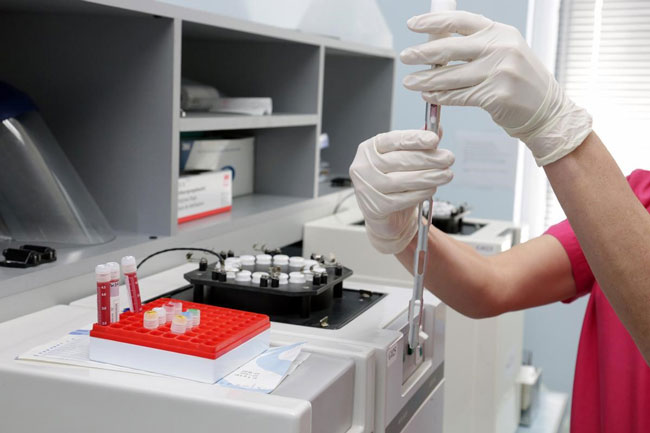Stem cells are immature, unspecialized precursor cells naturally found within all organisms, including humans. Due to their inherent regenerative and self-renewing properties, they offer a potential treatment option for healing, repairing, and regenerating any body tissue and organ damaged by different health conditions.
Recent developments in stem therapy have shown the potential of these cells as regenerative medicine for improving underlying autism spectrum disorder (ASD) symptoms. In particular, mesenchymal stem cells (MSCs) can help reverse sustained immune disorders and heal brain inflammations leading to improved ASD symptoms and a patient’s quality of life.
Let’s take a look at stem cell treatment, its potential benefits, and the expected results from the therapy.
How do stem cells and their exomes help treat autism?
Autism spectrum disorder is a group of heterogeneous neurodevelopmental disorders with symptoms varying from individual to individual. The etiology of ASD is still unknown, which is why addressing each symptom is quite challenging.
The disorder can be characterized by signs like:
- Social deficits.
- Communication and interaction disabilities.
- Stereotypical and repetitive verbal and non-verbal behaviors.
Stem cell transplant process involves introducing stem cell-based drugs within the body to help heal and regenerate damaged brain tissues for improved cognitive and behavioral functioning. Like other cells, MSCs produce extracellular vesicles known as exosomes that can travel to targeted cells to initiate healing. In the therapy, exosomes promote tissue repair, help modulate immune functions and reduce brain inflammation.
In general, the treatment promotes:
- Neuroprotection
- Anti-inflammation effect
- Immune modulation
- Neuronal plasticity
The scientific basis of autism treatment with stem cells and their exosomes
Clinical trials and studies are of utmost importance in validating the safety and efficacy of cellular therapies. Several studies are being conducted to deeply understand how efficient stem cells can be in treating autism, and their potential benefits.
Research and clinical trials
In a recent clinical trial, researchers examined the major differences stem cells and their exosomes had in treating underlying ASD conditions (doi: 10.2147/SCCAA.S155410). Over time, patients observed enhanced functional recovery, structural reorganizations, and trophic support to the injured tissues and brain.
Another study conducted in 2021 suggests that stem cell exosomes exhibit the same anti-microbial, immunosuppressive, and anti-inflammatory responses as their parent stem cell (doi: 10.3389/fmicb.2021.786111). This big leap can shift medicine from the cellular to a cellular level and potentially help provide more treatment options for microbial and neurodevelopmental conditions like ASD.
According to research, stem cell treatment supports individuals with neurodevelopmental conditions by:
- improving social relations;
- improving cognitive aspects;
- reducing speech and language delays;
- reducing inappropriate and repetitive behaviors;
- improving eye contact;
- reducing or eliminating seizures;
- relieving food allergies and regulating eating behavior

What are the advantages of cell-based therapy for managing autism over classical approaches?
Much research in is still needed to determine the potential benefits of stem cell therapy as regenerative medicine. However, cell-based therapies offer much more advantages over classical interventions.
Some of these benefits are:
- Cell-based therapies for autism offer targeted treatments by addressing the underlying symptoms of the disease.
- Medications can sometimes do patients more harm than benefit. With cell-based treatments, patients observe little to no side effects.
- Autism treatment with stem cells may provide more sustainable therapeutic effects than other interventions.
- Cell-based stem therapies have regenerative effects on the overall body; for instance, stem therapy helps regulate immune functions and regenerate damaged brain cells, neurons, and tissues.
However, each case needs to be evaluated individually to determine the potential efficacy of cell-based therapies.
What is the realistic result of stem cell treatment in autism?
Autism is a spectrum disorder that affects individuals in different ways, which is why there is no definitive cure for it. However, most research and clinical studies have proven cell-based therapy to be a potential therapeutic approach to treating a wide variety of symptoms in neurodevelopmental conditions.
Stem cell therapy benefits individuals with neurodevelopmental disorders by:
- Regenerating damaged or lost neurons.
- Inducing anti-inflammatory effects on brain and spinal cord.
- Protecting neurons from further degeneration.
- Improving neuroplasticity.
Several studies have reported stem cell therapy autism to have improved:
- Social communication
- Language
- Speech regression
- Stereotypical behavioral issues
- Eye contact
- Cognitive abilities
Moreover, no potential risks are associated with the stem cell transplant process in the case of professional administration, and the procedure is painless as well.
Conclusion
Mesenchymal stem cells and their derived exosomes are gaining much popularity within the medical community for their self-renewing, immunomodulatory, and anti-inflammatory functions. The treatment offers a much more sustainable, regenerative, and promising approach to treating underlying ASD conditions than traditional approaches. Do you believe that this method will be a breakthrough in medicine?

